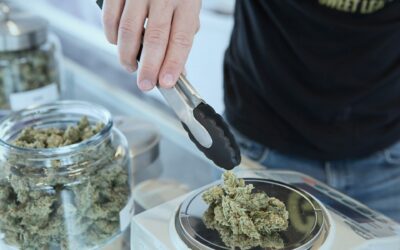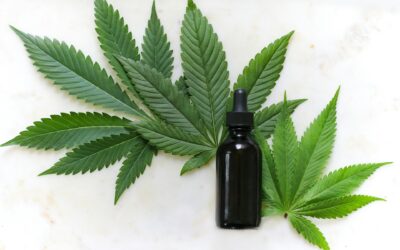In recent years, there has been a significant shift in public opinion regarding the use of cannabis. This shift has led to a wave of legislative changes across the country, with many states reevaluating their stance on the drug. As of now, there are 18 states, including Washington D.C., that have fully legalized the recreational use of cannabis for adults aged 21 and older. (The Legality of Cannabis)
In these states, individuals are allowed to possess and consume cannabis for personal use, and licensed businesses are permitted to sell it. However, each state has its own regulations and restrictions on the amount of cannabis that can be possessed and the locations where it can be consumed. For example, in Colorado, adults can possess up to one ounce of cannabis and can consume it in private residences or licensed establishments.
On the other hand, there are still states where cannabis remains completely illegal. These states, often referred to as “red states,” have not yet embraced the idea of legalizing cannabis for any purpose. In these states, possession, sale, and cultivation of cannabis are considered criminal offenses, punishable by fines and imprisonment.
However, even in states where cannabis is illegal, there has been a growing trend towards decriminalization. Decriminalization means that while cannabis is still technically illegal, the penalties for possession of small amounts are reduced to minor infractions, similar to a traffic ticket. This approach aims to reduce the burden on the criminal justice system and prioritize more serious crimes.
In addition to recreational use, many states have also legalized the use of cannabis for medical purposes. This means that individuals with certain qualifying medical conditions can obtain a medical marijuana card, allowing them to purchase and use cannabis for therapeutic purposes. The specific conditions that qualify for medical cannabis vary from state to state, but common conditions include chronic pain, epilepsy, and cancer.
It’s important to note that even in states where cannabis is legal, there are still federal laws in place that classify it as a Schedule I controlled substance. This conflicting legal landscape has created challenges for businesses operating in the cannabis industry, as they often face limitations when it comes to banking, taxation, and interstate commerce.
In conclusion, the legality of cannabis in the United States is a complex and evolving issue. While some states have fully embraced its use, others remain staunchly opposed. As public opinion continues to shift and more research is conducted on the potential benefits and risks of cannabis, it is likely that we will see further changes in the legal landscape in the years to come.
States Where Cannabis is Fully Legal (The Legality of Cannabis)
As of now, there are several states in the USA where cannabis is fully legal for both medical and recreational use. These states have implemented laws and regulations to govern the cultivation, distribution, and consumption of cannabis. The following states fall into this category:
- Alaska
- California
- Colorado
- Maine
- Massachusetts
- Nevada
- Oregon
- Vermont
- Washington
In these states, individuals who are of legal age can purchase cannabis from licensed dispensaries and use it for both medical and recreational purposes. However, it is important to note that there may still be restrictions on where cannabis can be consumed, such as in public places or while operating a vehicle.
Each of these states has its own set of regulations regarding the sale and use of cannabis. For example, in California, adults aged 21 and older can possess up to one ounce of cannabis and grow up to six plants for personal use. They can also purchase cannabis products from licensed retailers. In Colorado, adults aged 21 and older can possess up to one ounce of cannabis and grow up to six plants, with a maximum of three plants in the flowering stage. They can also purchase cannabis from licensed dispensaries.
Similarly, in Oregon, adults aged 21 and older can possess up to one ounce of cannabis in public and up to eight ounces in their homes. They can also grow up to four plants per household and purchase cannabis from licensed dispensaries. Each state has its own unique regulations, but the common theme is that cannabis is legal for both medical and recreational use.
It is worth mentioning that while cannabis is legal at the state level in these states, it is still illegal at the federal level. This creates a complex legal landscape, as federal law enforcement agencies can still enforce federal laws against cannabis, even in states where it is legal. However, the federal government has generally taken a hands-off approach to enforcing these laws in states that have legalized cannabis, prioritizing other issues.
The legalization of cannabis in these states has had a significant impact on their economies. It has created new business opportunities, such as the cultivation and sale of cannabis, and has generated tax revenue for the states. Additionally, it has provided an alternative to the illegal market, allowing consumers to purchase cannabis from regulated and safe sources.
Overall, the legalization of cannabis in these states has been a major step forward in the movement to reform cannabis laws in the United States. It has allowed individuals to access cannabis for both medical and recreational purposes, while also providing economic benefits to the states. As more states continue to explore cannabis legalization, it will be interesting to see how the landscape evolves and how it impacts the nation as a whole.
States Where Cannabis is Legal for Medical Use
While some states have fully legalized cannabis, others have chosen to allow its use only for medical purposes. These states have established medical marijuana programs that require individuals to obtain a medical card or recommendation from a qualified healthcare professional. The following states fall into this category:
- Arizona
- Arkansas
- Connecticut
- Delaware
- Florida
- Hawaii
- Illinois
- Louisiana
- Maryland
- Michigan
- Minnesota
- Missouri
- Montana
- New Hampshire
- New Jersey
- New Mexico
- New York
- North Dakota
- Ohio
- Oklahoma
- Pennsylvania
- Rhode Island
- Utah
- Virginia
- West Virginia
- Wisconsin
In these states, individuals with qualifying medical conditions can obtain cannabis from licensed dispensaries. The specific conditions that qualify for medical cannabis use may vary from state to state, so it is important to familiarize yourself with the regulations in your particular state (The Legality of Cannabis).
Medical cannabis has gained significant attention in recent years for its potential therapeutic benefits. Research has shown that cannabis can be effective in treating a wide range of medical conditions, including chronic pain, epilepsy, multiple sclerosis, and nausea associated with chemotherapy. As a result, many states have recognized the medical value of cannabis and have implemented programs to provide access to patients in need.
One of the key requirements for obtaining medical cannabis in these states is having a qualifying medical condition. Each state has its own list of conditions that qualify, which typically include chronic pain, cancer, glaucoma, HIV/AIDS, and epilepsy. However, some states have expanded their lists to include conditions such as Crohn’s disease, Parkinson’s disease, and post-traumatic stress disorder (PTSD).
Once an individual has been diagnosed with a qualifying condition, they must then obtain a medical card or recommendation from a qualified healthcare professional. This process usually involves a thorough evaluation of the patient’s medical history and symptoms to determine if medical cannabis is an appropriate treatment option. If approved, the patient will receive a medical card that allows them to purchase cannabis from licensed dispensaries.
These dispensaries play a crucial role in the medical cannabis industry. They are regulated by the state and must adhere to strict guidelines to ensure the quality and safety of the products they sell. Dispensaries are staffed by knowledgeable professionals who can provide guidance on different strains and products, helping patients find the most suitable options for their specific needs.
It is important to note that while medical cannabis is legal in these states, it is still illegal at the federal level. This creates some challenges, particularly for patients who need to travel across state lines. It is crucial for individuals to understand the laws and regulations of each state they visit to avoid any legal issues (The Legality of Cannabis).
Overall, the legalization of medical cannabis in these states has provided a much-needed alternative treatment option for individuals suffering from debilitating conditions. It has given patients access to a natural remedy that can improve their quality of life and alleviate symptoms that traditional medications may not adequately address. As more research is conducted and the medical benefits of cannabis become further understood, it is likely that additional states will join the growing list of those allowing medical cannabis use.
States with Restricted Use or Decriminalization (The Legality of Cannabis)
Some states have implemented laws that either decriminalize the possession of small amounts of cannabis or allow for its use in limited circumstances. While these states may not have fully legalized cannabis, they have taken steps to reduce the penalties associated with its possession. In Alabama, for example, the possession of less than one ounce of cannabis is considered a misdemeanor, punishable by a fine of up to $250. Similarly, in Georgia, the possession of less than one ounce of cannabis is a misdemeanor, but the penalties can include a fine of up to $1,000 and up to one year in jail.
In Kansas, possession of any amount of cannabis is a misdemeanor, but a first-time offense typically results in a diversion program rather than jail time. Kentucky, on the other hand, has a more lenient approach, with the possession of less than eight ounces of cannabis considered a misdemeanor punishable by a fine of up to $250.
In Mississippi, the possession of 30 grams or less of cannabis is a misdemeanor, punishable by a fine of up to $250. North Carolina also treats possession of up to half an ounce of cannabis as a misdemeanor, but the penalties can include a fine of up to $200 and up to 45 days in jail.
South Carolina has decriminalized the possession of less than one ounce of cannabis, making it a civil infraction punishable by a fine of up to $100. Similarly, in Tennessee, possession of half an ounce or less of cannabis is a misdemeanor, but the penalties can include a fine of up to $250 and up to one year in jail.
In Texas, the possession of two ounces or less of cannabis is a misdemeanor, punishable by a fine of up to $2,000 and up to 180 days in jail. Finally, in Wyoming, the possession of less than three ounces of cannabis is a misdemeanor, but the penalties can include a fine of up to $1,000 and up to one year in jail.
While these states have taken steps to reduce the penalties associated with cannabis possession, it is important to note that the laws regarding cannabis can still vary within these states. For example, some cities or counties may have stricter regulations than the state as a whole. Therefore, it is advisable to familiarize yourself with the specific regulations in your area to avoid any legal complications (The Legality of Cannabis).
States Where Cannabis is Illegal
Finally, there are still states in the USA where cannabis is completely illegal for both medical and recreational use. The following states fall into this category:
- Idaho
- Indiana
- Iowa
- Nebraska
- New Hampshire
- North Carolina
- South Dakota
- Tennessee
- Texas
- Wisconsin
- Wyoming
In these states, the possession, sale, and use of cannabis are illegal, regardless of whether it is for medical or recreational purposes. It is important to note that federal law still considers cannabis a controlled substance, regardless of its legal status within individual states.
While the majority of states in the USA have implemented some form of cannabis legalization, these states have chosen to maintain strict prohibition. The reasons behind their decision vary, but often stem from concerns about public health and safety, as well as the potential for abuse and addiction. These states adhere to federal law, which classifies cannabis as a Schedule I controlled substance, alongside drugs like heroin and LSD.
Idaho, for example, has taken a particularly conservative stance on cannabis. The state’s laws make no distinction between medical and recreational use, and possession of any amount of cannabis is considered a misdemeanor, punishable by up to one year in jail and a fine of up to $1,000. The state’s lawmakers argue that the potential risks associated with cannabis use outweigh any potential benefits, and they believe that maintaining strict prohibition is necessary to protect public health and safety (The Legality of Cannabis).
Similarly, Texas has some of the harshest cannabis laws in the country. Possession of less than two ounces of cannabis is a Class B misdemeanor, punishable by up to 180 days in jail and a fine of up to $2,000. The state does have a limited medical cannabis program, but it is highly restrictive and only available to patients with severe forms of epilepsy.
On the other hand, states like New Hampshire and Wisconsin have been hesitant to legalize cannabis due to concerns about the impact on youth and public health. They fear that legalization could lead to increased use among young people and potentially worsen existing public health issues, such as substance abuse and addiction.
Despite the strict laws in these states, there is a growing movement advocating for cannabis legalization nationwide. Proponents argue that legalization can bring numerous benefits, including economic growth, job creation, and increased tax revenue. They also point to the potential therapeutic properties of cannabis and argue that it should be available as a treatment option for various medical conditions.
As the debate over cannabis legalization continues, it is likely that more states will reconsider their stance on the issue. Public opinion has been shifting in favor of legalization, and several states have already taken steps to decriminalize or legalize cannabis. However, until federal law changes, these states will continue to enforce strict prohibition, making it important for individuals to be aware of the legal status of cannabis in their state before using or possessing it (The Legality of Cannabis)






